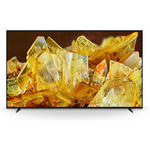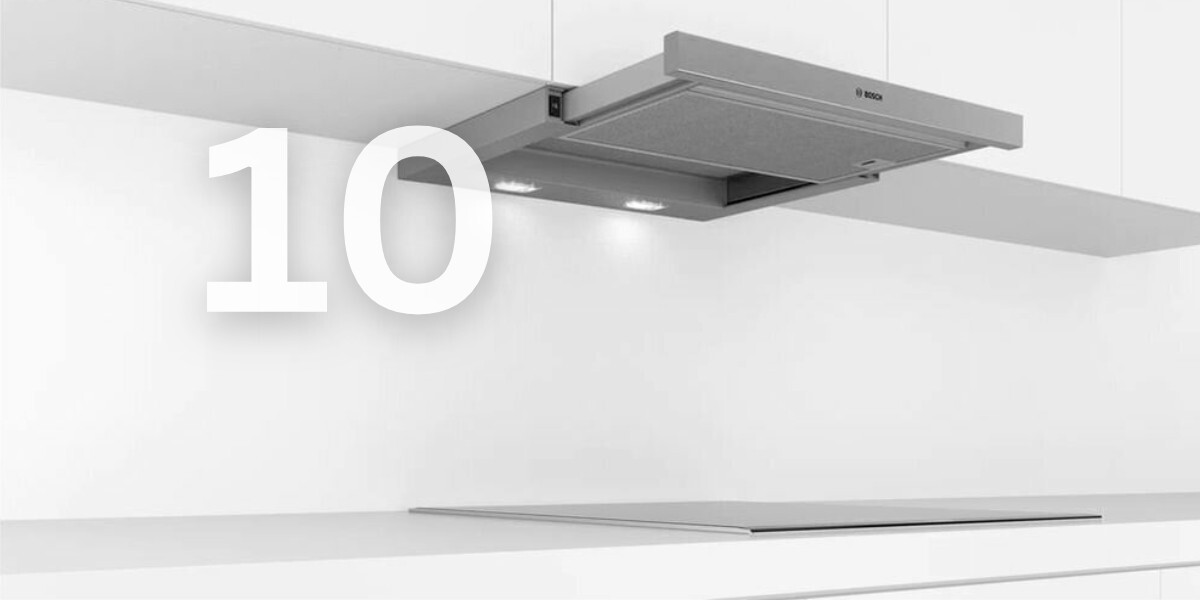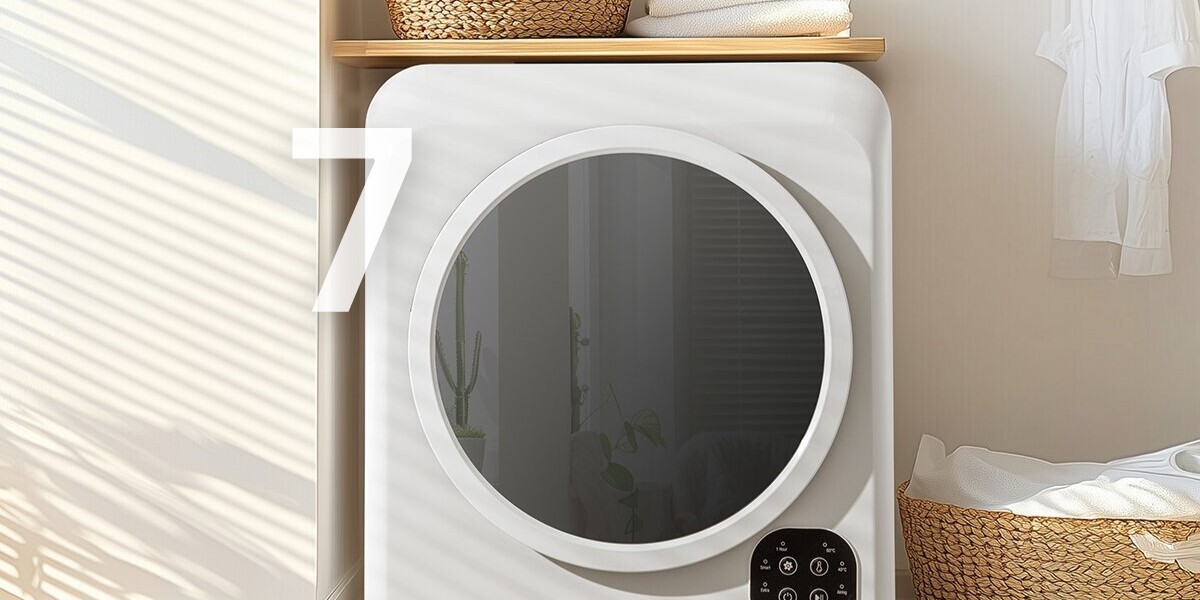
Your Cart
Your shopping cart is currently empty.
TV, Audio & Electronics
From movies and music to streaming and gaming, let's talk TV, tech and home entertainment!
TV, AUDIO & ELECTRONICS | 24 MARCH, 2025
6 MIN READ
Should you get a Mini LED TV?
Big screens, little lights, incredible visuals.
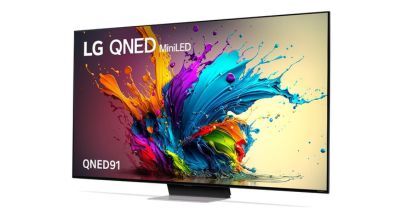
If you're shopping for a smart TV in 2026, you’ll increasingly come across the term Mini LED. Let’s look at what that means, so you can decide whether it’s worth getting a screen with this technology.
What is a Mini LED TV?
Mini LED TVs use tiny LEDs, instead of standard LEDs, to backlight their screens. This allows for brighter colours, as well as better contrast and black levels thanks to the higher number of dimming zones. All of this helps the image look clearer from a range of angles. No need to get grumpy if you miss out on a prime spot on the sofa and get the chair at the wrong end of the living room.
Traditional LED TVs have fewer dimming zones, which can lead to a ‘halo effect’ around bright objects on dark backgrounds. Mini LED reduces this issue, making your viewing experience more immersive, whether you're watching live sport, a movie on Netflix, or gaming.
Rather than being a standalone technology, mini LEDs are used to enhance existing LED-based tech like QLED (Quantum Dot LED used by Samsung, TCL and Hisense) and QNED (LG’s televisions with Quantum Dot + NanoCell LED). So, a TV won’t just be a Mini LED TV, it will generally be a QLED Mini LED TV or QNED Mini LED TV.
You won’t find any Mini LED OLED TVs though, because the pixels in OLEDs produce their own light and therefore don’t need a backlight (that’s why they are so thin and more expensive). Standard ultra HD TVs, which are usually cheaper than QLEDs and QNEDs, don’t have mini LEDs either.
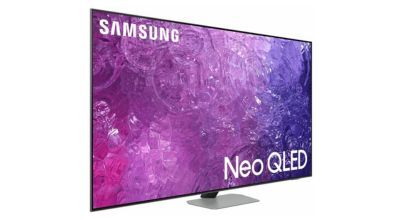
Mini LED TVs can have many times more dimming zones than regular LED TVs.
How many LEDs are in a Mini LED TV?
The number of LEDs in Mini LED screens varies depending on screen size, brand, and model, but typically, a Mini LED TV might have 10 to 100 times more LEDs than a screen with regular LEDs.
For example, a regular 65-inch QLED TV might have hundreds of LEDs, while a 65-inch QLED Mini LED TV could have several thousand. The individual LEDs are around 40 times smaller than standard LED lights, measuring between 0.008 mm and 0.2 mm, depending on the brand and model.
More, and smaller, LEDs allows for more dimming zones, which means more precise lighting and dimming, and improved picture quality.
Each dimming zone in a Mini LED TV may contain between four and eight LEDs. So, if that 65-inch QLED Mini LED TV had 5,000 LEDs it might have around 1,000 dimming zones. The larger size of regular LEDs means there are far fewer dimming zones: that regular 65-inch QLED TV might have 100 zones, for instance.
Is MicroLED the same as Mini LED?
No. MicroLED is a completely different technology that works more like OLED TVs, with each pixel producing its own light rather than relying on a backlight. This results in perfect blacks, infinite contrast and ultra-high brightness, but MicroLED TVs are currently very expensive and mostly used in commercial displays.
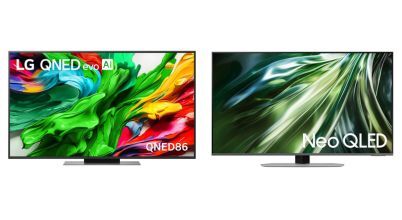
LG and Samsung have mid-range TVs with Mini LED technology starting from around $2,000
Is it worth it?
While they’re pricier than standard LED TVs of comparable size and specs, Mini LED TVs are still more budget-friendly than OLED options. Mini LED technology has been around for a couple of years but was initially only included in higher-priced TVs. In 2025, the tech has trickled down to some cheap TVs from Hisense and TCL, among others, who have models starting from around $1,000.
You'll also find affordable options from leading TV brands like Samsung and LG. LG’s Evo and Samsung’s Neo QLED ranges include Mini LED TVs starting from around $2,000.
If you’re willing to spend a bit extra on your new TV, here’s what makes Mini LED models worth considering:
Enhanced picture quality: With a lot more dimming zones, Mini LED TVs achieve deeper blacks, brighter highlights and enhanced contrast, especially in HDR content like Dolby Vision and HDR10.
Bright screens for any lighting: Unlike OLEDs, which offer pinnacle viewing in darker environments but can struggle in bright rooms, Mini LED TVs maintain vivid brightness, making them a great choice for well-lit rooms. Their advanced local dimming means they can also handle darker rooms better than regular LED TVs.
Smooth gaming experience: Many models support HDMI 2.1, variable refresh rates (VRR), and 120Hz refresh rates, offering reduced input lag and smooth visuals for fast-action gaming.
Mini LED TVs have gone from being a premium feature to a more accessible upgrade. If you’re after a precise, high-contrast screen without stretching your budget to OLED, Mini LED is a really good choice.
We offer FREE delivery, connection and setup with all TVs
Get your new TV sooner with Free Next Day Delivery*
We deliver Mini LED TVs, and the rest of our AV products, from soundbars and projectors to wall mounts and Blu-ray players, to 95% of Australia’s population with Appliances Online's legendary FREE delivery*. Whether you’re getting a TCL QD-Mini LED or a Sony Bravia 9, we can usually get your new telly to you by the next day (Mon-Fri) if it’s in stock. Most stores don’t offer this, because TVs are fragile, but our delivery teams are super careful. PLUS, if you’re getting rid of an old TV, we’ll happily take it away for recycling when we deliver your new one.
You can view a huge range of TVs here, or if you want to find out more about LCD, HDR and LED TV, or any other details to help you choose the best TV for your home, check out our TV Buying Guide or call us any time - 24/7 - on 1300 004 500.

Oli is Appliances Online's editor and blogger, with almost two decades of lifestyle-related writing and editing to his name. With a mission to help you buy better and live smarter, his brand loyalty will forever belong to the appliance manufacturer that develops a self-emptying dishwasher.
Latest Articles
KITCHEN
24 FEBRUARY 2026
10 of our top best selling rangehoods in Australia 2026
The key to clearer air and cleaner surfaces in your kitchen
LAUNDRY
17 FEBRUARY 2026
If you suffer from allergies, a clothes dryer could be a game-changer
How indoor drying helps manage itchy eyes and sneezing
KITCHEN
5 FEBRUARY 2026
What are dishwasher place settings?
Find the perfect dishwasher capacity for your household
LAUNDRY
3 FEBRUARY 2026
7 of our top best selling vented dryers in Australia 2025-26
Need a stackable or wall-mountable tumble dryer?
More Like This
KITCHEN
24 FEBRUARY 2026
10 of our top best selling rangehoods in Australia 2026
The key to clearer air and cleaner surfaces in your kitchen
LAUNDRY
17 FEBRUARY 2026
If you suffer from allergies, a clothes dryer could be a game-changer
How indoor drying helps manage itchy eyes and sneezing
KITCHEN
5 FEBRUARY 2026
What are dishwasher place settings?
Find the perfect dishwasher capacity for your household

![Samsung 65 Inch QN85F NeoQLED 4K MiniLED Smart AI TV QA65QN85FAWXXY [2025] hero image](/ak/6/a/b/6/6ab63e583aca8a452561f614640ab73d1ad8b4a6_QN85F_Product_Image_03-widget.png)
![Samsung 65 Inch QN70F NeoQLED 4K MiniLED Smart AI TV QA65QN70FAWXXY [2025] hero image](/ak/8/7/5/8/8758fa7e23762dd67a1d4ce3e16c83515efdda4c_QN70F_Hero_Image-widget.png)
![Samsung 55 Inch Q7F QLED 4K Smart TV QA55Q7FAAWXXY [2025] hero image](/ak/2/3/8/6/23864f43e24d409042adf4dbd62528f502faeed6_Q7F_Hero_Image-widget.png)
![Hisense 75 Inch Q6QAU 4K Smart QLED TV 75Q6QAU [2025] hero image](/ak/f/8/c/7/f8c72efcf04e9cd7add2c87021b596371bff18fb__43_85_Q6QAU_Product_Detail_Carousel_Images_2800x1660px___0A-widget.png)
![Samsung 75 Inch U8500F Crystal UHD 4K Smart TV UA75U8500FWXXY [2025] hero image](/ak/1/5/d/9/15d9a9aeb596368bee37a874bc9a0f5285832958_65_83_U8500F_Hero-widget.png)
![TCL 75 Inch C7K 4K Premium QD-Mini LED Google TV 75C7K [2025] hero image](/ak/5/a/c/b/5acb1f7e4d483f50aabd99bb2d383637bb69127b_55_65_75_C7K_Front_hero-widget.png)
![Samsung 55 Inch The Frame QLED 4K Smart TV QA55LS03FAWXXY [2025] hero image](/ak/3/4/d/6/34d67eb0164308d7fc1d81239d27e9d866611675_43_55_LS03F_Product_Image_14-widget.png)
![TCL 50 Inch C7K 4K Premium QD-Mini LED Google TV 50C7K [2025] hero image](/ak/b/2/b/a/b2ba58b8cbe654560e05e954c854be5844790716_50C7K_Front_HERO-widget.png)
![TCL 75 Inch P7K 4K QLED Google TV 75P7K [2025] hero image](/ak/e/a/e/d/eaed07a870029b6107bdeb7e2718bbce7e065487_55P7K_Front_hero-widget.png)
![Hisense 65 Inch U7QAU ULED Mini-LED TV 65U7QAU [2025] hero image](/ak/f/9/3/d/f93d8fbfcd4f587ae42930d53c31da91221f703d_updated_55_65_75_85U7QAU_Product_Detail_Carousel_Images_2800x1660px___0A-widget.png)
![Hisense 65 Inch Canvas S7NAU 4K QLED Smart TV 65S7NAU [2024] hero image](/ak/1/f/f/b/1ffb2e2f072585ea0f222d088c579aa777579f63_65S7NAU_14-widget.png)
